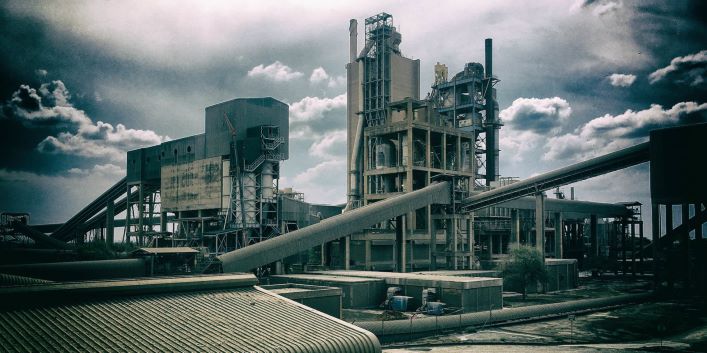
While the quality of imported cement has been
improving in recent years, it is usually not in line with the high quality of
locally produced cement, the Concrete Institute (TCI) pointed out during a site
visit to cement producer PPC’s Dwaalboom plant, in the North West, this week.
TCI reiterated that cheap imports were putting
local producers at risk in an industry already contending with an economic
downturn and a lack of investor confidence.
MD Bryan
Perrie pointed out that the country’s cement sector had the
capacity to produce 20-million tonnes a year, but was currently only producing
about 13-million tonnes. Thus, about 5-million to 6-million tonnes of capacity
was being wasted.
Despite the available capacity, the country still
imported about one-million tonnes of cement in 2018. China and Vietnam are the
biggest cement exporters to South Africa.
Perrie stressed that TCI members’ cement was of a
high quality, complying with the South African Bureau of Standards and National
Regulator for Compulsory Specifications requirements. End-users have no
assurances about the quality of imported materials.
Owing to the state of the economy, the end-user is
opting for cheaper cement, without concern for the environmental or quality
repercussions.
Perrie highlighted that cheap imports were
undercutting local producers’ products by 45%.
He explained that the cost of doing business in
South Africa was very high, with local producers bearing the costs of meeting
transformation targets, carbon taxes and stringent quality control necessary
for producing locally.
Foreign producers did not have to contend with
these. This leaves local producers unable to run their plants sustainably and
they, therefore, cannot undertake plant upgrades, because the risks are too high.
At Stake
Perrie indicated that, for the local industry,
plant, equipment and property valued at R11.5-billion was at stake.
The domestic cement manufacturing industry
comprises 17 plants, employing about 7 000 people. A further 35 000
jobs are dependent on the country’s cement value chain, with skills that are
not easily replaceable in the country’s deindustrialising economy.
Further, the industry contributes to community
development; provides billions of rands in taxes, including carbon tax; and
ensures quality control in the safety of cement products.
Perrie emphasised that if the sector was not
equalised, the problem would worsen, and these contributions would not be
realised.
The country could be at risk of its cement sector
shutting down, ultimately leaving it vulnerable to dependency on foreign
imports, which would have significant repercussions, considering the country’s
infrastructure backlogs.
Mitigation Measures
TCI members stressed that they were only seeking to
level the playing field, and not to stop the imports of cement into the country
altogether.
Local producers merely want to ensure that the high
cost of local production, owing to environmental and social commitments, can be
applied, in some form, to importers, to equalise prices.
As such, the TCI engaged the International Trade
Administration Commission (Itac) of South Africa in March to investigate the
surge in imports of cement at lower prices; and applied to Itac in August with
a request for a safeguard action to ensure the viability of the industry.
Itac has since requested more information, which
TCI expects to submit by next week.
If Itac decides the case has merit, it will conduct
a formal investigation and may impose import tariffs, which would be subjective
depending on the country and producer in question and trade agreements with
those countries, besides other criteria.
Perrie explained that, in 2015, Itac provided
antidumping relief against Pakistan, which was effective in curtailing the high
level of imports from the country at that point. However, this was then
replaced by other countries capitalising on the opportunity to flood the local
market with cheap cement.
Secondly, TCI has applied to the Department of
Trade, Industry and Competition (DTIC) for designation, which will require each
government-led project to buy local cement. TCI has engaged with the DTIC since
January, and is currently collating requested data.
Another mitigating action taken by TCI is
discussions with regulatory bodies to tighten the regulation of imported
cement, to ensure that the quality is compliant.
Concrete Impact
Unlike other industries, cement plants are
typically built on the site of the raw material, to negate the cost and
environmental repercussion of transporting the material. These raw material
deposits are typically in rural areas, so that the factory becomes a means of
employment and social development for the community.
Attendees stressed the importance of this, given
the severity of the problem of underdeveloped rural communities.
This is perhaps no more evidenced than at PPC’s
Dwaalboom cement plant, where the site visit afforded the opportunity to see
the impact of the plant on the area and the surrounding rural communities.
Leadership from the local taxi association, tribal
leaders and community representatives all expressed their gratitude to PPC and
its contribution to the region, both from the plant and other social
initiatives that the company has undertaken.
PPC MD Njombo
Lekula indicated that the company had gone above its social
requirements, as it realised the importance of contributing further to
transformation.
One of the most notable efforts was the
construction of a road from the operation to the town, which has cut travelling
time by more than half. The previous gravel road resulted in long travelling
times, high maintenance costs for taxi operators and employees being unable to
travel to work in rainy weather.
However, owing to the state of the industry and the
capacity gap, Lekula informed that the plant had been forced to cut back on
some parts of its operation, such as the packaging element; and has had to go
through a difficult and painful process of retrenching about 90 employees.
He indicated that, should the situation not improve, both in terms of cheap imports and construction demand, cement producers may have to consider closing down operations, which would have “devastating” effects on the communities in which they operate. https://www.engineeringnews.co.za/article/local-cement-players-solidify-defence-against-import-threat-2019-11-14

